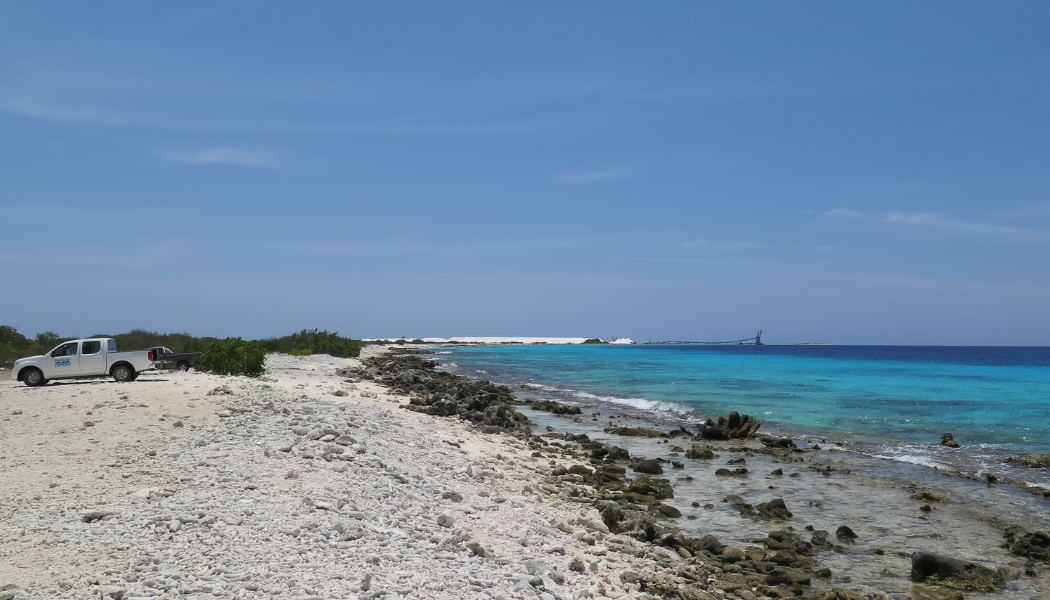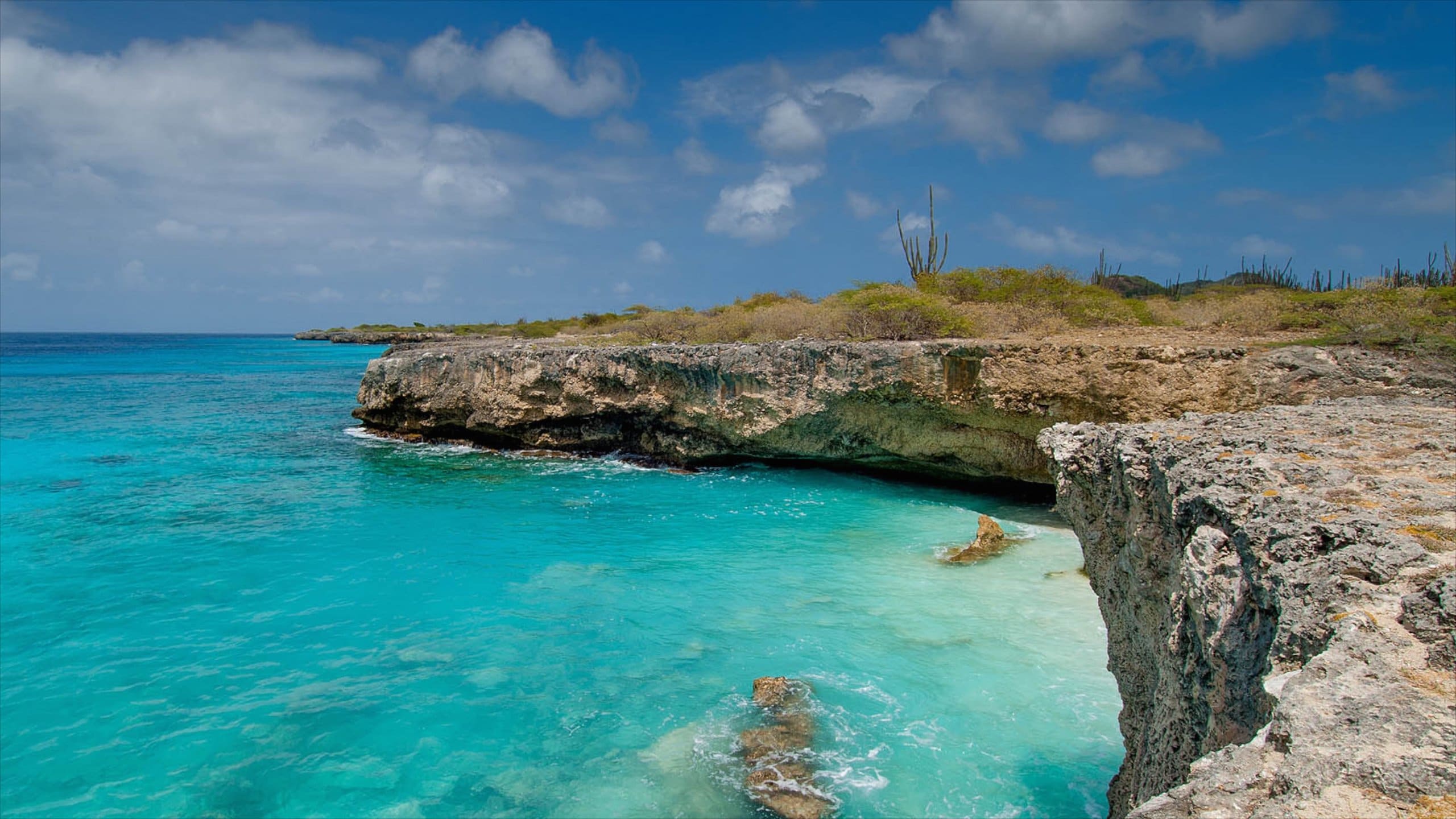Bonaire Marine Park Tours
Experience the Caribbean's first marine protected area with guided eco-tours showcasing pristine coral ecosystems, conservation efforts, and underwater biodiversity

Bonaire National Marine Park, established in 1979, protects the island's entire coastline and surrounding waters - one of the Caribbean's most successful marine conservation stories. Marine park tours provide educational insights into reef ecology, conservation initiatives, and the delicate balance sustaining Bonaire's underwater paradise. Learn about coral restoration projects, sustainable tourism practices, and marine species protection while exploring pristine ecosystems. From glass-bottom boat tours for non-swimmers to guided snorkel eco-tours with marine biologists, these experiences reveal why Bonaire's commitment to conservation has created such spectacular results visible both above and below the water.
Why Choose Marine Park Tours in Bonaire?
Pioneer in Marine Protection
First Caribbean marine park (1979), setting the standard for reef conservation and sustainable marine tourism.
Pristine Ecosystems
Decades of protection have created the Caribbean's healthiest coral reefs with exceptional biodiversity.
Educational Experiences
Learn about marine biology, coral restoration, and conservation from expert guides and marine biologists.
Eco-Tourism Leader
Your participation directly supports conservation efforts and sustainable tourism practices.
Glass-Bottom Boat Options
Non-swimmers can view spectacular reefs through glass-bottom boats without getting wet.
All Ages Welcome
From toddlers to seniors, marine park experiences accommodate everyone regardless of swimming ability.
Types of Marine Park Tours in Bonaire
Glass-Bottom Boat Tours
Perfect for non-swimmers and families - view spectacular coral and marine life through clear glass bottom.
Eco-Snorkel Tours
Guided snorkel tours with marine biologists teaching about coral species, fish identification, and conservation.
Conservation Education Tours
Visit marine park offices, coral restoration sites, and learn about ongoing protection efforts.
Klein Bonaire Marine Tours
Boat trips to the uninhabited island focusing on pristine marine ecosystems and wilderness areas.
What to Expect on Marine Park Tours
Duration
Glass-bottom boat tours (1.5-2 hours), eco-snorkel tours (2-3 hours), full educational programs (3-4 hours).
Education Focus
Learn about coral species, marine life, conservation efforts, and how the marine park protects ecosystems.
Marine Viewing
See healthy coral reefs, tropical fish, sea turtles, rays, and diverse marine life in protected waters.
What's Included
Expert guide, marine park entry, equipment if snorkeling, and educational materials about conservation.
Expert Tips for the Best Experience
Marine park tag ($25 snorkel, $45 dive) required - funds conservation programs
Glass-bottom boat tours perfect for elderly or those uncomfortable in water
Ask about coral restoration volunteer opportunities if interested
Eco-tours with marine biologists offer deeper educational value
Reef-safe sunscreen mandatory - strictly enforced to protect corals
Visit marine park office in Kralendijk for maps and site information
Combine education tour with snorkeling for comprehensive experience
Photography encouraged - help spread conservation message
Support local conservation by purchasing marine park merchandise
Share your eco-tour experience - raises awareness about reef protection
Frequently Asked Questions
Q:What is Bonaire National Marine Park?
A: Established in 1979, it was the Caribbean's first marine park, protecting Bonaire's entire coastline from high water mark to 200-foot depth. Includes coral reefs, seagrass beds, mangroves, and marine life. Strict no-anchor, no-fishing, no-touching rules preserve ecosystem health.
Q:How much do marine park tours cost?
A: Glass-bottom boat tours: $49-65. Eco-snorkel tours with biologists: $70-90. Conservation education programs: $45-60. Klein Bonaire marine tours: $75-95. Marine park admission tag: $25/year snorkel, $45/year diving.
Q:Do I have to pay to enter the marine park?
A: Yes. Marine park tags required for all water activities (snorkeling, diving, kayaking). $25/year snorkelers, $45/year divers. Funds support reef protection, mooring maintenance, and conservation programs. Available at dive shops and park office.
Q:Can non-swimmers enjoy marine park tours?
A: Absolutely! Glass-bottom boat tours provide excellent reef viewing without swimming. Some tours include coastal areas, mangrove exploration, and beach visits. Marine park encompasses both underwater and coastal ecosystems.
Q:What conservation efforts can I learn about?
A: Learn about coral restoration projects, lionfish removal programs, turtle protection, mooring systems preventing anchor damage, fishing regulations, and community education initiatives. Bonaire is a global leader in marine conservation.
Q:Is snorkeling allowed in the marine park?
A: Yes! Snorkeling is encouraged as low-impact way to appreciate reefs. Rules: don't touch coral, don't feed fish, use reef-safe sunscreen, don't stand on reefs. Yellow rocks mark approved entry points protecting sensitive areas.
Q:Are marine park tours suitable for children?
A: Very much so! Glass-bottom boats perfect for all ages. Snorkel tours welcome kids 5+ with vests. Educational focus teaches children about ocean conservation. Great learning experience for families.
Q:What makes Bonaire's marine park special?
A: One of the Caribbean's oldest and most successful marine protected areas. Strict regulations, community support, and sustainable tourism have preserved reefs while others declined. Model for marine conservation worldwide with measurably healthy coral coverage.
Why Visit Bonaire?
World-class diving with pristine coral reefs
Bonaire Marine Park - Protected underwater paradise
Shore diving accessible from most beaches
Excellent marine life and biodiversity
Relaxed atmosphere and uncrowded beaches
Perfect for water sports and nature lovers
Best Time to Visit
Weather
Bonaire enjoys tropical weather year-round with average temperatures of 82°F (28°C). The island has pleasant trade winds and excellent water visibility.
Best Months
December to April offers the best weather with minimal rainfall, perfect water visibility, and ideal conditions for diving and snorkeling.
Peak Season
December to April brings peak tourist season with higher prices but guaranteed excellent weather and minimal hurricane risk.
Off Season
May to November offers lower prices and fewer crowds, though June to November is hurricane season with occasional storms.
Other Popular Tours in Bonaire
Plan Your Bonaire Trip
Transportation Tips
Rent a car for flexibility, use taxis, or take organized tours. Many dive sites are accessible by car and the island is relatively small.
Car Rental Deals in Bonaire
Rent a car for maximum flexibility and explore at your own pace on Expedia USA.
Where to Stay
Find the perfect accommodation for your Bonaire adventure. From luxury resorts to cozy hotels, we've got you covered.
Best Hotel Deals in Bonaire
Discover top-rated hotels with exclusive rates and special offers on Expedia USA.
